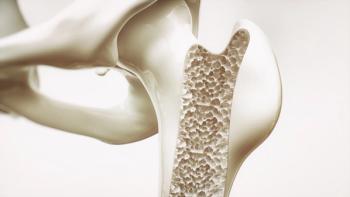
The Benefits of Anti-TNF Biosimilars
Authors of a review say biosimilars would improve treatment, not just reduce cost.
Anti-TNF biosimilars would allow a more effective “treat-to-target” approach to immune-mediated inflammatory disease, argue two Biogen executives in a
“The more cost-effective nature of biosimilars will allow patients to be treated to target and then to be maintained on the most ideal regimen based on their risk factors and personal needs,” wrote Mourad F. Rezk, M.D., global head of medical affairs (biosimilars) for the company and Burkhard Pieper, director of scientific affairs of the company’s European headquarters for biosimilars.
Rheumatoid arthritis, inflammatory bowel disease and psoriasis are among the immune-mediated inflammatory diseases that Rezk and Pieper discussed. The anti-TNF biologics include infliximab, adalimumab, and etanercept.
Target-to-treat is a treatment strategy that involves early aggressive treatment with clear endpoint — the target — in mind. Rezk and Pieper say the target-to-treat approach has been successful in treating with diabetes and hypertension, and they say that some guidelines for the immune-mediated inflammatory disease take the same approach. But they also point to evidence of low rates of adherence, which they say can be traced back to lack of awareness of guidelines, individual physician beliefs, and cost issues.
But Rezk and Pieper also says that a majority of international guidelines restrict the use of biologics to second-line treatment, so patients are started on conventional disease-modifying antirheumatic drugs (DMARDs), which include methotrexate, leflunomide and hydroxychloroquine. The authors cite several studies suggesting that starting biologics sooner would benefit patients, including a meta-analysis published earlier this year that include 47 studies that included more than 18,000 Crohn’s disease patients.
They also discuss research that shows the biologics can keep patients in remission and studies of tapering and stopping treatment that are motivated, at least in part, by the high cost of biologics. “While dose-reducing strategies can be successful for a subset of patients, they expose others to increased disease burden and reduced quality of life,” they conclude.
Anti-TNF biosimilars can reduce costs, but Rezk and Pieper say they can also increase access and help “realize clinical goals,” such as early initiation of biological treatment, targeting to treat and continuing treatment to maintain remission.
Newsletter
Get the latest industry news, event updates, and more from Managed healthcare Executive.























